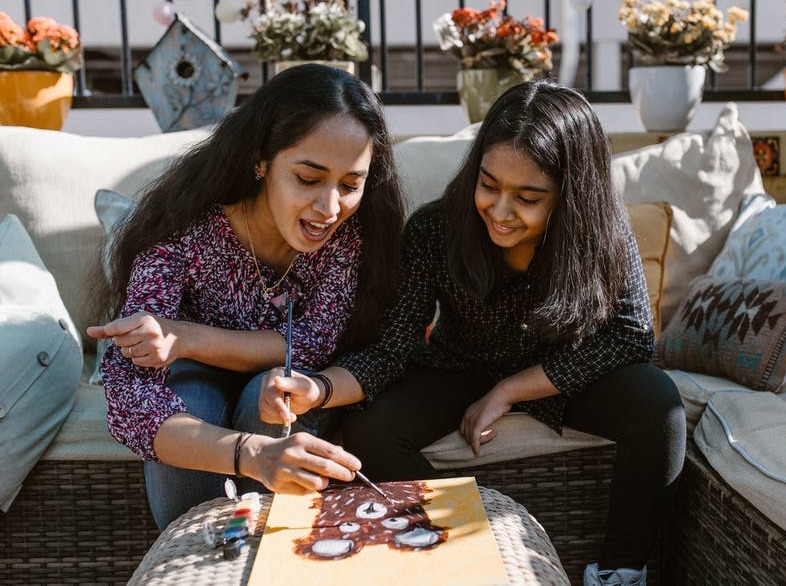
Traditional talk therapy works very well for clinicians. You can see more clients in a day, have easy access to your records, and enjoy an environment that is comfortable for you. For teens, though, an office environment can be intimidating and uncomfortable. Verbal communication may also be difficult for them, and thus, talk therapy is not effective, either. In order to really get your adolescent clients to open up, try doing something.
Using Activity to Develop Rapport
Mental health care professionals need to create a relationship of trust and rapport with their young clients, but that can be very difficult to do in a traditional office setting. Most teens, particularly those with addiction or mental health conditions, struggle to open up very easily with adults. Many have experienced trauma that is very difficult to talk about, or these teens may find it difficult to build enough trust to share their experiences with others.
Doing something like taking a walk or going for a hike, engaging them in new activities such as gardening, or using various types of experiential therapy helps to develop a rapport in a setting that is more conducive to sharing emotions and experiences. Being able to observe your clients’ reactions in real-world settings allows you to understand them better, as well as how you can better reach them.
Creating Experiences That Inspire Communication
One way to create effective communication is by using preferred activities. Taking an interest in their interests helps to build trust more quickly with clients who are particularly shut down or have been severely traumatized. Choosing activities that are valuable to them also demonstrates that you care about them and are truly interested in helping them.
Even when they are unable or unwilling to tell you what their preferred activities are, you can talk to their parents about how to best approach them and what their interests are. When you are able to engage with them in their favorite activities, you also create experiences that inspire communication.
Offering New Opportunities and Experiences
Finding new experiences and opportunities for your clients can help them to open up. Using methods such as experiential therapy or complementary therapies creates the opportunity to bond with them, challenge them, and help them grow. Sometimes, they are even inspired by the experiences to develop a new hobby, skill, or even a profession.
New experiences offer new perspectives and ideas, which can help change negative thinking. Taking them out of their comfort zone and introducing them to interesting new activities can help unlock emotions and trauma and open new doors for healing. From a therapeutic perspective, the possibilities are unlimited and typically much more lasting and powerful for your client. You can see the results and changes much more quickly when your clients are doing something rather than just talking.
Helping Teens Access Emotions Through Activities
Doing something can help teens express emotions, even non-verbally. Observing their reactions and interactions with a new environment or activity gives you a lot of information about their personality and how to approach treatment, as well as how they are feeling in the moment.
Activities help to remove the walls that so many teens put up to protect their emotions and experiences. Being active can also assist in physically releasing emotions, especially if there is a lot of physical movement. Using the arts can also help appeal to their deeper emotions and give them a medium to express how they are feeling or what has happened to them. Using something like animal therapy helps them to create a non-verbal bond that helps them to access emotions they did not realize they had.
Improving the Effectiveness of Your Therapy
As with learning of any kind, doing an activity while learning not only helps to learn and heal more quickly but also reinforces the learning more effectively. Therapy that is interactive helps to engage the client and maintain interest in their healing process. Doing something improves critical thinking and reinforces the tools given to them to access in the future. Therapy becomes interesting rather than something teens dread, and lasting memories are created that help them remember what it feels like to process and release emotions.
For many clients, doing something with them as a group or individual can help restore trust in adults because they are not in the typical clinical environment. When you improve their trust, you improve not only the effectiveness of your therapy but also their quality of life. Reaching out to them in their favorite activity or a new experience can make your therapy more effective and their experience life-changing.
Giving adolescents with addiction or mental health conditions new experiences can expand their horizons and help them to buy into their treatment. Helping teens to learn and grow builds confidence, which ultimately can help restore their self-esteem. Taking advantage of these opportunities to expose your adolescent clients to new opportunities can be a life-changing experience for them. At Sustain Recovery, our passion is changing lives. Our extended residential program is designed to fill a gap between traditional residential treatment and long-term treatment. We understand that addiction or the resulting behaviors are not the problem but rather the way they are coping with the actual problems. We offer structure and consistency within a loving environment during the treatment process. Our program helps them to learn more about themselves and rebuild their self-belief. Please contact our Irvine, California, facility at (949) 407-9052 if you have a client who could use something more than traditional residential care.






